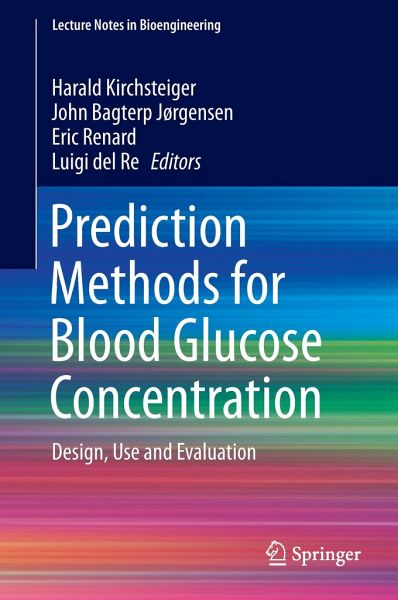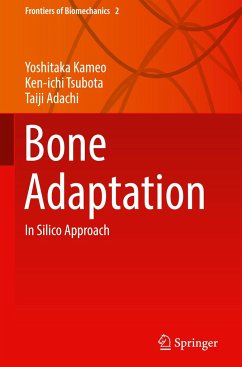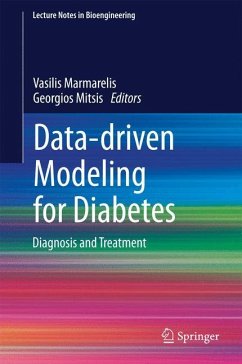
Prediction Methods for Blood Glucose Concentration
Design, Use and Evaluation
Herausgegeben: Kirchsteiger, Harald; Jorgensen, John Bagterp; Renard, Eric; Del Re, Luigi

PAYBACK Punkte
38 °P sammeln!
This book tackles the problem of overshoot and undershoot in blood glucose levels caused by delay in the effects of carbohydrate consumption and insulin administration. The ideas presented here will be very important in maintaining the welfare of insulin-dependent diabetics and avoiding the damaging effects of unpredicted swings in blood glucose - accurate prediction enables the implementation of counter-measures. The glucose prediction algorithms described are also a key and critical ingredient of automated insulin delivery systems, the so-called "artificial pancreas".The authors address the ...
This book tackles the problem of overshoot and undershoot in blood glucose levels caused by delay in the effects of carbohydrate consumption and insulin administration. The ideas presented here will be very important in maintaining the welfare of insulin-dependent diabetics and avoiding the damaging effects of unpredicted swings in blood glucose - accurate prediction enables the implementation of counter-measures. The glucose prediction algorithms described are also a key and critical ingredient of automated insulin delivery systems, the so-called "artificial pancreas".
The authors address the topic of blood-glucose prediction from medical, scientific and technological points of view. Simulation studies are utilized for complementary analysis but the primary focus of this book is on real applications, using clinical data from diabetic subjects.
The text details the current state of the art by surveying prediction algorithms, and then moves beyond it with the most recent advancesin data-based modeling of glucose metabolism. The topic of performance evaluation is discussed and the relationship of clinical and technological needs and goals examined with regard to their implications for medical devices employing prediction algorithms. Practical and theoretical questions associated with such devices and their solutions are highlighted.
This book shows researchers interested in biomedical device technology and control researchers working with predictive algorithms how incorporation of predictive algorithms into the next generation of portable glucose measurement can make treatment of diabetes safer and more efficient.
The authors address the topic of blood-glucose prediction from medical, scientific and technological points of view. Simulation studies are utilized for complementary analysis but the primary focus of this book is on real applications, using clinical data from diabetic subjects.
The text details the current state of the art by surveying prediction algorithms, and then moves beyond it with the most recent advancesin data-based modeling of glucose metabolism. The topic of performance evaluation is discussed and the relationship of clinical and technological needs and goals examined with regard to their implications for medical devices employing prediction algorithms. Practical and theoretical questions associated with such devices and their solutions are highlighted.
This book shows researchers interested in biomedical device technology and control researchers working with predictive algorithms how incorporation of predictive algorithms into the next generation of portable glucose measurement can make treatment of diabetes safer and more efficient.












